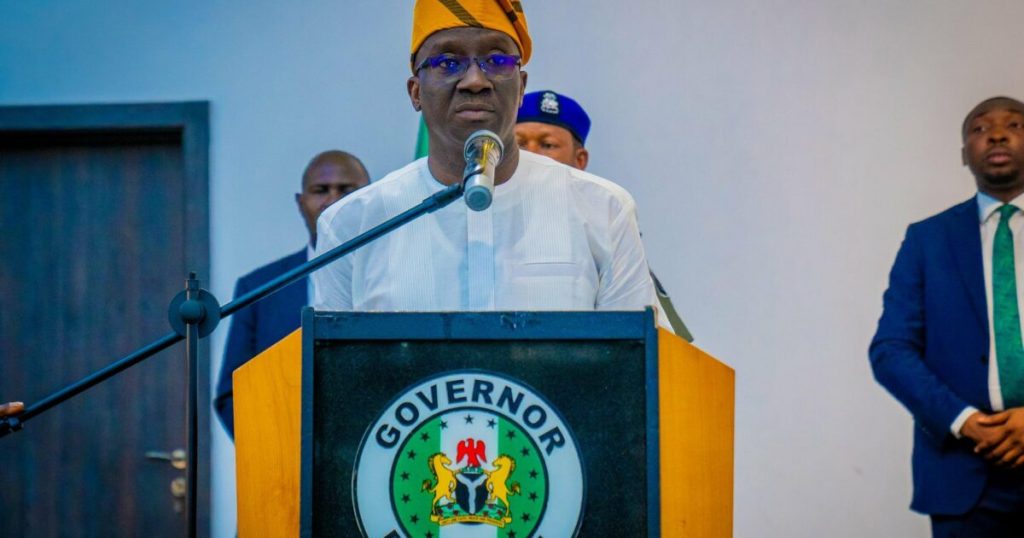The political landscape of Edo State is currently embroiled in a fierce exchange between the ruling party and the opposition, centered around allegations of gubernatorial negligence and fiscal irresponsibility. The Peoples Democratic Party (PDP), the main opposition party, has launched a scathing attack on Governor Godwin Obaseki and his deputy, Philip Shaibu, accusing them of abandoning their governance duties for frequent international trips while simultaneously planning to allocate a substantial N4.2 billion for luxury vehicles intended for newly appointed commissioners. This accusation paints a picture of a government prioritizing lavish spending over the pressing needs of the state’s citizenry.
The PDP’s critique further alleges a state of paralysis within Edo’s governance, claiming a leadership vacuum has emerged due to the governor and deputy governor’s alleged absenteeism. This supposed vacuum, they argue, has exacerbated the state’s existing challenges, including escalating insecurity, economic hardship, and delayed worker entitlements. The opposition party portrays a grim picture of abandoned public projects, farmers fleeing their lands due to fear of armed gangs, rampant kidnappings on highways, and traders forced to prematurely close their businesses due to escalating insecurity. They contend that the governor and his deputy are detached from these ground realities, prioritizing foreign engagements over addressing the urgent needs of their constituents.
The PDP further criticizes the proposed appointment of 28 commissioners, labeling it an excessive expansion of the executive council and a driver of inflated governance costs. Coupled with the alleged plan to procure 28 SUVs at N150 million each for these commissioners, the opposition paints a narrative of fiscal recklessness and misplaced priorities. They argue that this expenditure comes at the expense of essential services and public welfare, further burdening a state already grappling with economic difficulties.
The Edo State government, however, vehemently refutes these accusations, dismissing them as misleading and politically motivated. The governor’s spokesperson, Crusoe Osagie, maintains that the state’s administration is functioning effectively, with the deputy governor actively present and diligently performing his duties. He characterizes the PDP’s claims as a deliberate attempt to spread falsehoods and undermine the current government’s efforts. The government’s response emphasizes a structured and accountable approach to governance, contrasting it with what they perceive as the PDP’s reliance on propaganda.
The government further counters the PDP’s claims regarding worker welfare, highlighting Edo State’s position as one of the states with the highest minimum wage in Nigeria. They attribute the challenges in the education, health, and infrastructure sectors to the legacy of the previous administration, also led by the PDP. They argue that the current administration inherited these systemic issues and is actively working to address them, placing the blame squarely on the previous government’s alleged inaction and lack of investment in these crucial sectors.
Regarding the size of the proposed cabinet, the government defends its approach, arguing that inclusiveness and representation across all senatorial districts are being misconstrued as excessive expansion. They maintain their commitment to delivering on their promises to the people of Edo State, focusing on restoring the state’s pride and securing a prosperous future. This back-and-forth exchange highlights the deep political divisions within Edo State, with both sides presenting contrasting narratives of governance performance and priorities. The ongoing debate underscores the importance of transparency and accountability in public administration and the critical role of a vigilant opposition in holding the government to account.














